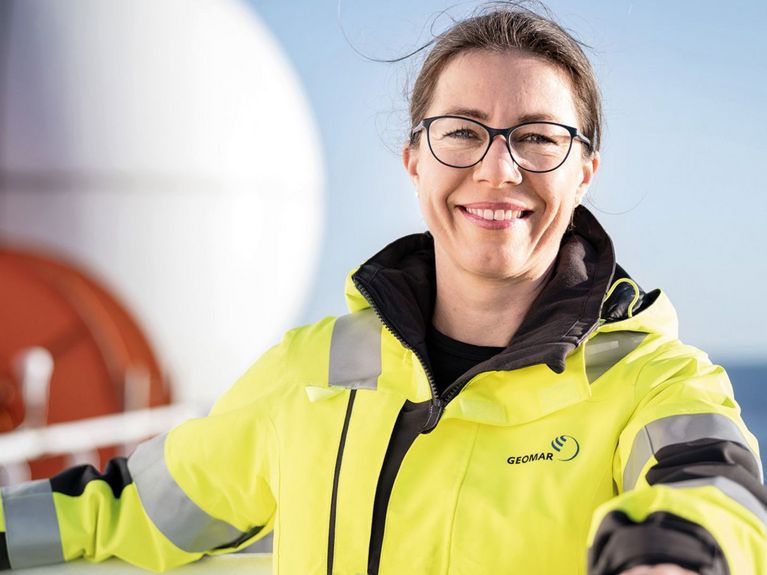Interview
"The UN Ocean Conference brings together more than just countries"

Picture: Felix Gross, CAU
Three questions for Katja Matthes, Director of the GEOMAR Helmholtz Centre for Ocean Research Kiel, at the conclusion of the UN Ocean Conference in Nice.
From a marine research perspective, where do you currently see the greatest need for action in terms of the management of international oceans?
The oceans are warming up, losing oxygen and becoming more acidic. This is throwing entire ecosystems out of balance, with consequences for underwater life and for us humans. Three challenges are particularly urgent at present.
Firstly, the high seas begin just 200 kilometres off the coast, creating a vast, largely unprotected habitat. The BBNJ Agreement (Biodiversity Beyond National Jurisdiction) aims to address this issue. It also establishes the goal of protecting at least 30 percent of marine areas by 2030, a project which has made slow progress so far. In order to achieve this, close ocean observation is also required, but this is currently under serious threat due to the geopolitical situation. We are already seeing data sets become unavailable.
Secondly, deep-sea mining. The International Seabed Authority has been working on a set of rules for years, yet a binding mining code has not yet been adopted. Our research indicates that mining raw materials such as manganese could harm deep-sea ecosystems for centuries, if not millennia. It is highly problematic that the first licences are now being granted in the US without any assessment of the ecological risks.
Thirdly, the ocean is an important carbon sink. It covers 70 per cent of the Earth's surface and absorbs a quarter of carbon dioxide. We must conduct more intensive and responsible research into extraction and storage options.
What are your thoughts on the most important outcomes of the UN Ocean Conference, and how do you think they will impact marine conservation?
The official negotiations provided important impetus. During the conference, more than 20 countries ratified the High Seas Protection Agreement, with Germany set to follow suit soon. This brings the entry into force of the treaty, along with all subsequent measures such as the establishment of marine protected areas, within reach. Right at the start, President Emmanuel Macron put the expansion of marine protected areas on the agenda. Federal Environment Minister Carsten Schneider expressly supported this goal. The moratorium on deep-sea mining also received further backing. Germany and the European Union are providing an important counterweight to countries focusing on short-term raw material extraction. These developments send a strong signal ahead of the upcoming UN negotiations.
The UN Ocean Conference not only brings countries together, but also creates a space for cross-sectoral exchange and new alliances through numerous side events. Together with leading international marine scientists, we have developed recommendations to strengthen mission-oriented research, which have been incorporated into the negotiation process. The same applies to the strengthening of ocean observation as a prerequisite for sustainable ecosystem management. These results demonstrate that multilateral cooperation remains robust despite the current geopolitical situation.
What personal impressions did you take away?
I found the atmosphere aboard the German research vessel Meteor particularly inspiring. For five days, research institutions and stakeholders presented projects, discussed ideas, and collaborated on initiatives. Together with international and local partners, we further developed our one-year research campaign, FUTURO. The goal of the campaign is to establish sustainable ecosystem management off the coast of West Africa. Little data is available about this region, which is also the livelihood of millions of people.
A personal highlight was the trip on the Malizia Explorer. Boris Herrmann's sailing ship is equipped with state-of-the-art measurement technology and will provide valuable data from hard-to-reach regions in the future for GEOMAR, the Alfred Wegener Institute Helmholtz Centre for Polar and Marine Research, and the HEREON Helmholtz Center. We are taking this inspiration with us, both scientifically and personally.
Readers comments